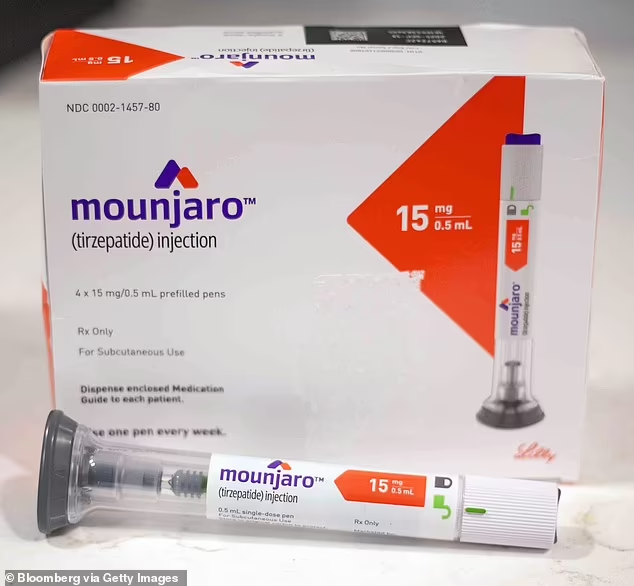Mounjaro vs Ozempic: Which Weight Loss Jab Reigns Supreme?
In the burgeoning market of weight-loss injections, a clear rivalry has emerged between prominent medications like Ozempic, Wegovy, and Mounjaro. For many individuals struggling with obesity, these drugs represent a potential game-changer, offering a new path towards significant weight loss and improved metabolic health.

Mounjaro vs Ozempic: Which Weight Loss Jab Reigns Supreme?
A recent head-to-head clinical trial and a compelling personal account highlight the comparative effectiveness of these treatments, suggesting a frontrunner in this evolving therapeutic landscape.
The Science Behind the Jabs: GLP-1 and GIP Agonists
The key players in this new generation of weight-loss medications are primarily GLP-1 receptor agonists (like semaglutide, the active ingredient in Ozempic and Wegovy) and dual GLP-1 and GIP receptor agonists (like tirzepatide, the active ingredient in Mounjaro). These drugs work by mimicking natural hormones in the body that regulate blood sugar, slow gastric emptying, and reduce appetite, leading to reduced calorie intake and significant weight loss.
Head-to-Head Trial Results: Mounjaro Shows Superiority
A significant development in understanding the comparative efficacy of these drugs comes from the first-ever head-to-head clinical trial specifically designed to compare tirzepatide and semaglutide for weight loss in adults with obesity but without type 2 diabetes. The results of the SURMOUNT-5 trial, published in the New England Journal of Medicine, demonstrated that tirzepatide led to statistically greater reductions in body weight and waist circumference over 72 weeks compared to semaglutide.
Participants treated with tirzepatide achieved an average weight reduction of 20.2%, compared to 13.7% for those on semaglutide. This represented a 47% greater relative weight loss with tirzepatide.
Furthermore, a significantly higher percentage of participants on tirzepatide achieved key weight loss thresholds of 10%, 15%, 20%, and 25% compared to the semaglutide group. Beyond weight loss, tirzepatide also showed numerically larger improvements in other health markers, including blood pressure, cholesterol levels, and blood sugar control, consolidating its position as a highly effective metabolic health intervention.
A Personal Perspective: Navigating the Options
For individuals navigating the options within this rapidly expanding market, personal experience offers valuable insight. One individual, who describes herself as a “one-woman fat-jab research lab,” has been using these medications since July 2018, trying Saxenda (liraglutide), Ozempic, Wegovy, and now Mounjaro.
Based on this extensive personal trial, she attests to the superior effectiveness of Mounjaro in her own weight loss journey. This personal account resonates with the clinical trial data, adding a qualitative layer to the quantitative findings.
Market Impact and Shifting Landscape
The emergence and success of these potent weight-loss medications are already reshaping the landscape of the weight management industry. The author notes the significant impact on traditional weight loss companies, citing the bankruptcy filing of Weight Watchers in America, a company that held substantial market value at its peak just before the widespread adoption of these injectable drugs.
This illustrates the disruptive potential of GLP-1 and GIP agonists, presenting a powerful new alternative to diet and exercise programs for many individuals.
Breaking the Stigma: Freedom from Judgment
Beyond the physical benefits, the author passionately argues for the psychological freedom these drugs offer to individuals who have long struggled with their weight.
For many, obesity is not merely a physical challenge but a source of relentless societal judgment and stigma. Society often treats fatness as a moral failing, implying a lack of willpower, a perspective rarely applied to individuals with other health conditions like cancer, heart disease, or addiction. This double standard leads to unfair criticism and shame directed towards people with obesity.
The author contends that these medications offer a definitive solution for a disease (obesity) that rivals cancer as a killer, yet their use is sometimes met with skepticism or accusations of “cheating.” This highlights a deep-seated societal prejudice that suggests individuals with obesity should be made to “suffer” or that their condition is entirely their own fault.
The personal decision to use these medications, often shrouded in secrecy due to this stigma (as potentially seen with high-profile individuals attributing significant weight loss solely to diet and exercise), is framed by the author as a choice for health and well-being, not a moral failing.
A New Era of Possibility
For those who have faced a lifetime of struggling with weight, trying countless diets and exercise regimes with limited long-term success, these medications represent a profound shift. The author’s personal experience underscores that, for her, Mounjaro has been uniquely effective after trying multiple options.
This highlights the potential of these drugs to offer a viable and sustainable path to weight loss for individuals for whom other methods have failed, potentially freeing them from a cycle of self-loathing and frustration.
The clinical evidence and personal testimonials suggest that Mounjaro, with its dual-action mechanism, currently stands out as a particularly potent tool in the fight against obesity and related metabolic conditions. While the societal conversation around these drugs continues to evolve, for individuals seeking effective solutions, they represent a new era of possibility and a path towards improved health and a different relationship with their weight.





